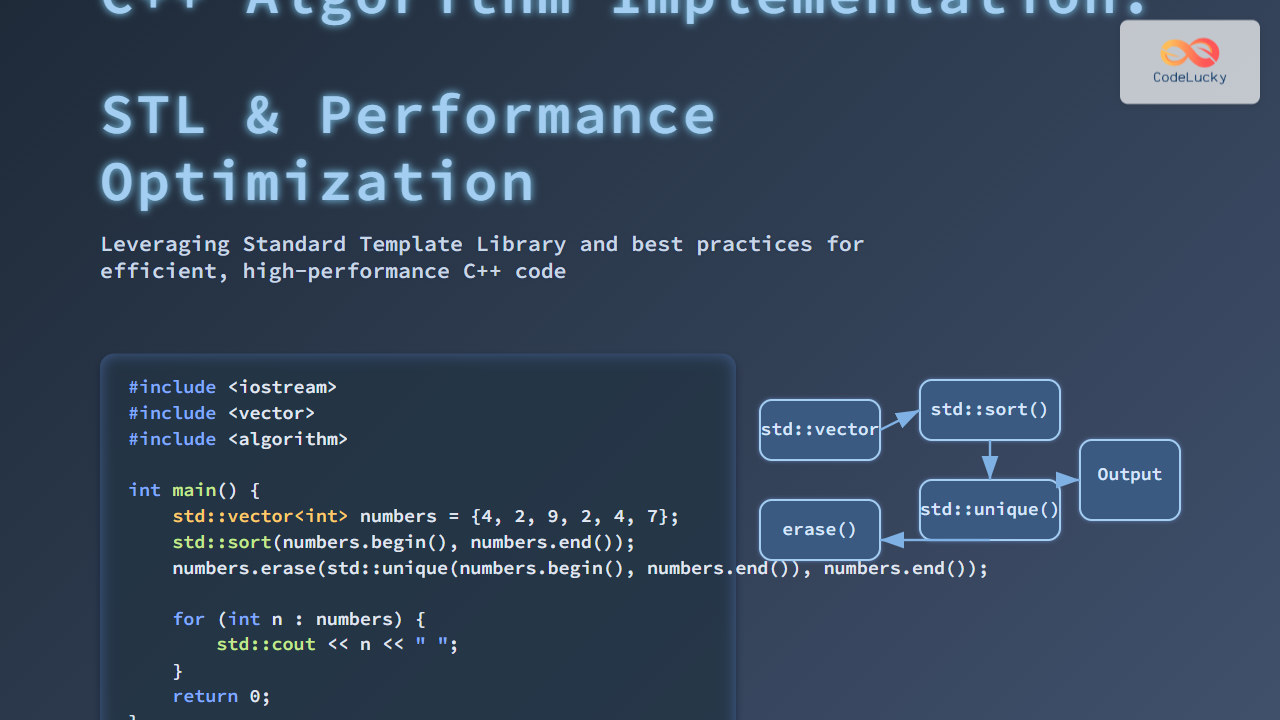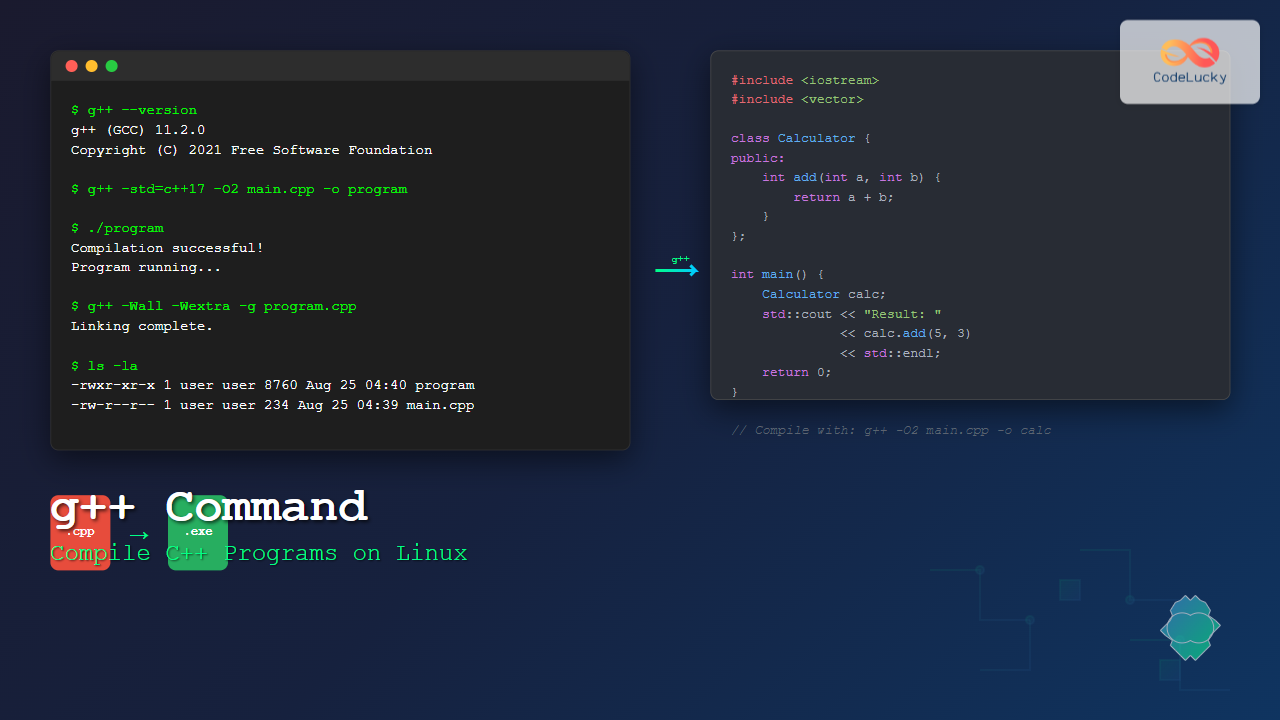In the world of C++ programming, variables are the building blocks that allow us to store and manipulate data. Understanding how to declare and initialize variables is crucial for writing efficient and effective C++ code. This comprehensive guide will delve into the intricacies of C++ variables, exploring various types, declaration methods, and initialization techniques.
What are Variables in C++?
Variables in C++ are named storage locations in the computer’s memory that hold data. They act as containers for values that can be modified during program execution. Each variable has a specific type that determines what kind of data it can store and how much memory it occupies.
🔑 Key Point: Variables are essential for storing and manipulating data in C++ programs.
Variable Declaration in C++
Declaring a variable in C++ involves specifying its type and giving it a name. The general syntax for variable declaration is:
data_type variable_name;
Let’s look at some examples:
int age;
double salary;
char grade;
bool isStudent;
In these examples, we’ve declared variables of different types:
ageis an integersalaryis a double-precision floating-point numbergradeis a single characterisStudentis a boolean value
🔍 Pro Tip: Choose meaningful variable names that reflect their purpose in the program. This improves code readability and maintainability.
Variable Initialization in C++
Initialization is the process of assigning an initial value to a variable at the time of declaration. C++ offers several ways to initialize variables:
1. Copy Initialization
This is the traditional C-style initialization:
int score = 100;
double pi = 3.14159;
char initial = 'A';
2. Direct Initialization
This method uses parentheses:
int count(0);
double temperature(98.6);
3. Uniform Initialization (C++11 and later)
This method uses curly braces and is considered the most versatile:
int quantity{50};
double price{29.99};
bool inStock{true};
🔧 Best Practice: Uniform initialization is preferred in modern C++ as it prevents narrowing conversions and works consistently across different types.
Let’s compare these initialization methods with a practical example:
#include <iostream>
#include <string>
int main() {
// Copy Initialization
int age = 25;
// Direct Initialization
double height(1.75);
// Uniform Initialization
std::string name{"Alice"};
bool isEmployed{true};
std::cout << "Name: " << name << std::endl;
std::cout << "Age: " << age << std::endl;
std::cout << "Height: " << height << " meters" << std::endl;
std::cout << "Employed: " << (isEmployed ? "Yes" : "No") << std::endl;
return 0;
}
Output:
Name: Alice
Age: 25
Height: 1.75 meters
Employed: Yes
In this example, we’ve used different initialization methods for various types of variables and then printed their values.
Advanced Variable Declarations and Initializations
Multiple Variable Declaration
C++ allows you to declare multiple variables of the same type in a single statement:
int x, y, z;
double length = 10.5, width = 5.2, height = 3.0;
Auto Keyword (C++11 and later)
The auto keyword allows the compiler to automatically deduce the type of a variable based on its initializer:
auto i = 42; // int
auto d = 3.14; // double
auto c = 'A'; // char
auto s = "Hello"; // const char*
🎓 Learning Note: While auto can be convenient, use it judiciously. Explicit type declarations often make code more readable and self-documenting.
Const Variables
The const keyword is used to declare variables whose values cannot be changed after initialization:
const int MAX_STUDENTS = 30;
const double PI = 3.14159265359;
Reference Variables
Reference variables are aliases for other variables:
int original = 10;
int& ref = original; // ref is a reference to original
ref = 20; // This changes the value of original as well
Let’s see these concepts in action with a more complex example:
#include <iostream>
#include <vector>
#include <string>
int main() {
// Multiple variable declaration and initialization
int a = 5, b = 10, c = 15;
// Using auto
auto sum = a + b + c;
// Const variable
const double TAX_RATE = 0.08;
// Reference variable
int& ref_to_a = a;
// Vector initialization using uniform initialization
std::vector<int> numbers{1, 2, 3, 4, 5};
// Auto with range-based for loop
for (const auto& num : numbers) {
std::cout << num << " ";
}
std::cout << std::endl;
// Demonstrating reference variable
std::cout << "a before: " << a << std::endl;
ref_to_a = 50;
std::cout << "a after: " << a << std::endl;
// Using const variable
double price = 100.0;
double total_price = price * (1 + TAX_RATE);
std::cout << "Total price with tax: $" << total_price << std::endl;
return 0;
}
Output:
1 2 3 4 5
a before: 5
a after: 50
Total price with tax: $108
This example demonstrates:
- Multiple variable declaration and initialization
- Use of
autofor type deduction - Const variables for values that shouldn’t change
- Reference variables as aliases
- Vector initialization using uniform initialization
- Range-based for loop with
auto
Common Pitfalls and Best Practices
Uninitialized Variables
Always initialize variables before using them. Uninitialized variables can contain garbage values, leading to unpredictable behavior:
int x; // Uninitialized
std::cout << x; // Undefined behavior
Narrowing Conversions
Be cautious of narrowing conversions, where a value of a larger type is assigned to a variable of a smaller type:
int i = 3.14; // Narrowing conversion, i will be 3
Uniform initialization can help prevent this:
int i{3.14}; // Compiler error: narrowing conversion
Shadowing Variables
Avoid declaring variables with the same name in nested scopes, as this can lead to confusion:
int x = 5;
{
int x = 10; // This shadows the outer x
std::cout << x; // Prints 10
}
std::cout << x; // Prints 5
🚫 Avoid: Shadowing variables can make code harder to understand and maintain.
Advanced Initialization Techniques
List Initialization for Arrays
C++11 introduced list initialization for arrays:
int fibonacci[] = {0, 1, 1, 2, 3, 5, 8, 13};
Initializer Lists for User-Defined Types
You can use initializer lists with your own classes:
class Point {
public:
int x, y;
Point(int x, int y) : x(x), y(y) {}
};
Point p{10, 20}; // Uses the constructor
Default Member Initializers (C++11)
You can provide default values for class members:
class Rectangle {
public:
int width = 0;
int height = 0;
Rectangle(int w, int h) : width(w), height(h) {}
Rectangle() = default; // Uses the default values
};
Rectangle r1; // width and height are 0
Rectangle r2{5, 10}; // width is 5, height is 10
Let’s put these advanced techniques into practice:
#include <iostream>
#include <vector>
#include <string>
class Person {
public:
std::string name = "John Doe";
int age = 30;
Person(std::string n, int a) : name(n), age(a) {}
Person() = default;
};
int main() {
// List initialization for arrays
int primes[] = {2, 3, 5, 7, 11, 13};
// Initializer list for vector
std::vector<double> temperatures{98.6, 99.1, 97.9, 98.2, 98.0};
// User-defined type with uniform initialization
Person alice{"Alice Smith", 28};
// Default member initializers
Person anonymous;
std::cout << "Primes: ";
for (int prime : primes) {
std::cout << prime << " ";
}
std::cout << std::endl;
std::cout << "Temperatures: ";
for (double temp : temperatures) {
std::cout << temp << " ";
}
std::cout << std::endl;
std::cout << "Person 1: " << alice.name << ", " << alice.age << std::endl;
std::cout << "Person 2: " << anonymous.name << ", " << anonymous.age << std::endl;
return 0;
}
Output:
Primes: 2 3 5 7 11 13
Temperatures: 98.6 99.1 97.9 98.2 98
Person 1: Alice Smith, 28
Person 2: John Doe, 30
This example showcases:
- List initialization for arrays
- Initializer lists with vectors
- Uniform initialization with user-defined types
- Default member initializers in classes
Conclusion
Mastering variable declaration and initialization in C++ is crucial for writing robust and efficient code. From basic declarations to advanced initialization techniques, understanding these concepts allows you to create more flexible and maintainable programs.
Remember these key points:
- Always initialize variables before use
- Choose the appropriate initialization method based on your needs
- Use meaningful variable names
- Be aware of potential pitfalls like narrowing conversions and variable shadowing
- Leverage modern C++ features like uniform initialization and
autowhen appropriate
By applying these principles and practices, you’ll be well on your way to becoming a proficient C++ programmer. Happy coding! 🚀💻

















